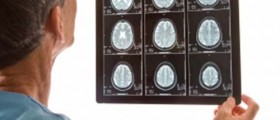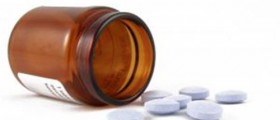
Premenstrual syndrome (PMS) is believed to affect 80 percent of the all women at some extent. For some, the symptoms are mild and tolerable, but for some they may be so heavy that they require medical attention.
PMS is a term used to designate a number of physiological, psychological and behavioral changes that take place during four or five days prior to menstruation. Some women only have physical problems, and others only emotional. Those who are particularly unfortunate suffer from all forms of PMS. Also, not all women suffer from PMS all the time. For some, it only happens once or twice a year.
What causes PMS
The major factor for PMS are hormones. During the entire menstrual cycle a woman’s body goes through hormonal changes. An average cycle involves three phases. The first phase is called follicular phase and it means menstrual bleeding. Ovulatory phase involves egg release and luteal phase includes disintegration of the egg. In all three stages, and especially after ovulation, there are fluctuations in levels of estrogen and progesterone, they interfere with other hormones and cause PMS.
Another cause of PMS is more chemical. After ovulation and just before menstrual bleeding, the level of serotonin in the brain fluctuates, leading to emotional and psychological symptoms of PMS. Other factors that may lead to PMS include stress, poor dietary habits, drinking and substance abuse.
Symptoms of PMS
There are many possible physical symptoms that can be attributed to PMS. The most common of them include joint pain, muscle ache, headache and menstrual migraine, nausea, vomiting, constipation or diarrhea, bloating, flatulence, pain in abdomen and lower back, water retention, tenderness and swelling of breasts, changes in libido, acne, sore throat, sinus problems, heart palpitations, aggravation of existing chronic conditions, fatigue, dizziness and difficulty maintaining balance.
As if these are not frustrating enough, emotional and behavioral changes also occur during PMS and usually include anxiety, depression, irritability, melancholy, hopelessness, sadness, anger, mood swings, food cravings, insomnia, lack of interest, difficulty concentrating and poor alertness.
Treatment for PMS
Unfortunately, there is no one medication that will treat all the possible symptoms of PMS. However, doctors may prescribe certain medications that will address specific problems that occur in this period. For example, doctors sometimes prescribe antidepressants for mood swings, depression, irritability, cravings and insomnia. In addition, one can take over-the-counter pain medication like ibuprofen to relieve the pain and cramps.
For mild PMS, slight lifestyle changes can be very beneficial. This includes a low-sodium diet, less caffeine, more calcium, multivitamin supplements, light and frequent meals, moderate exercise and rest.


-Causes,-Symptoms,-Diagnosis-And-Treatment_f_280x120.jpg)














Your thoughts on this
Loading...